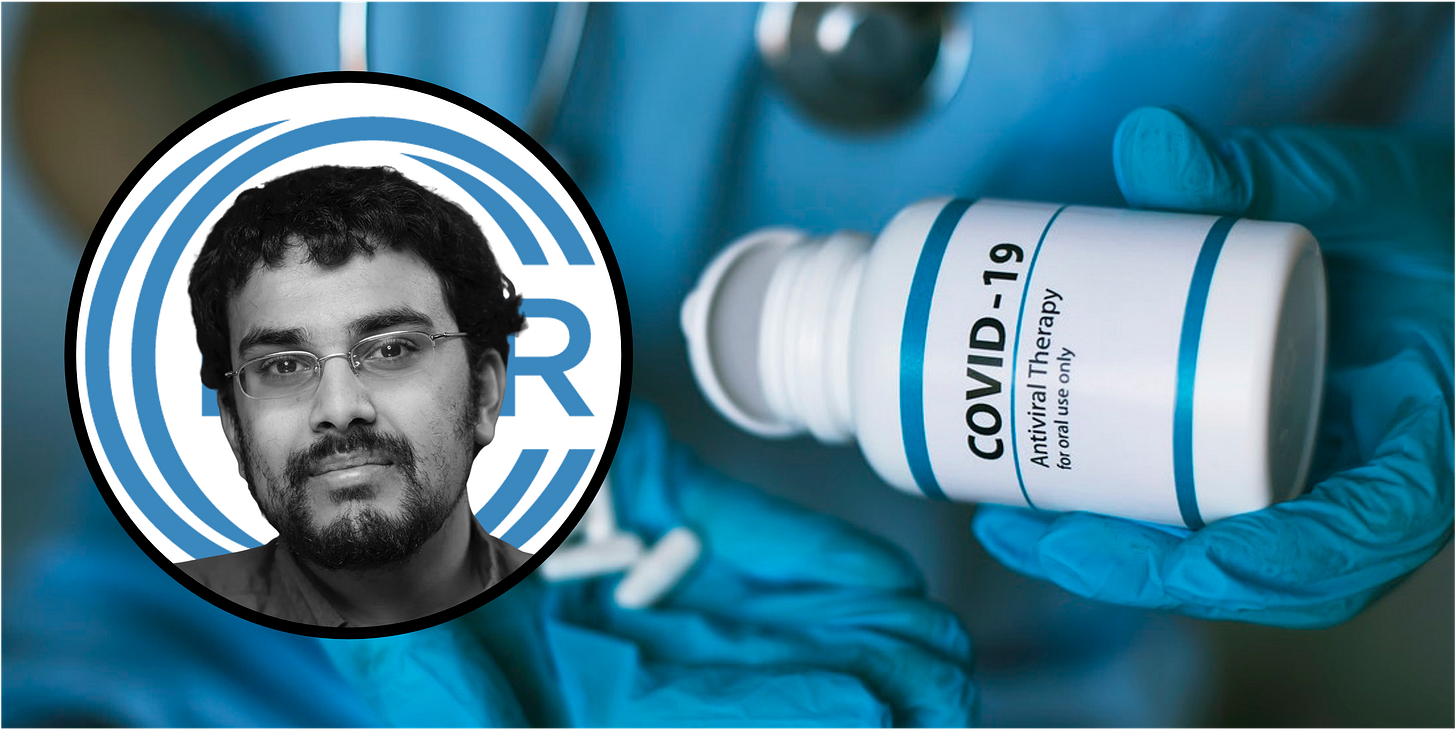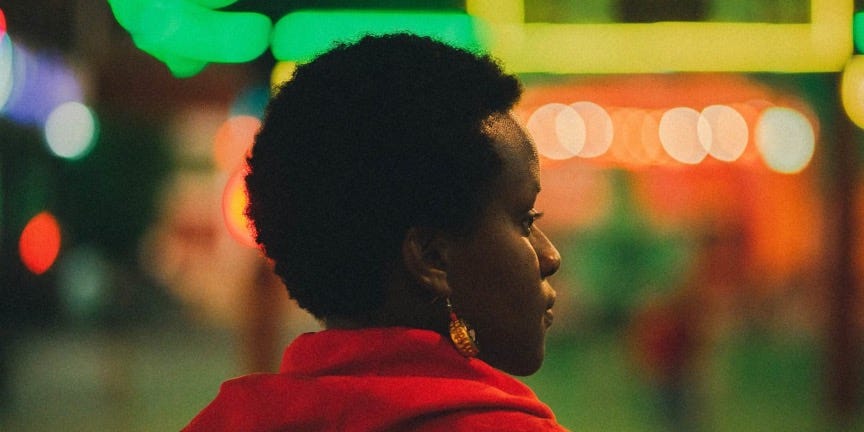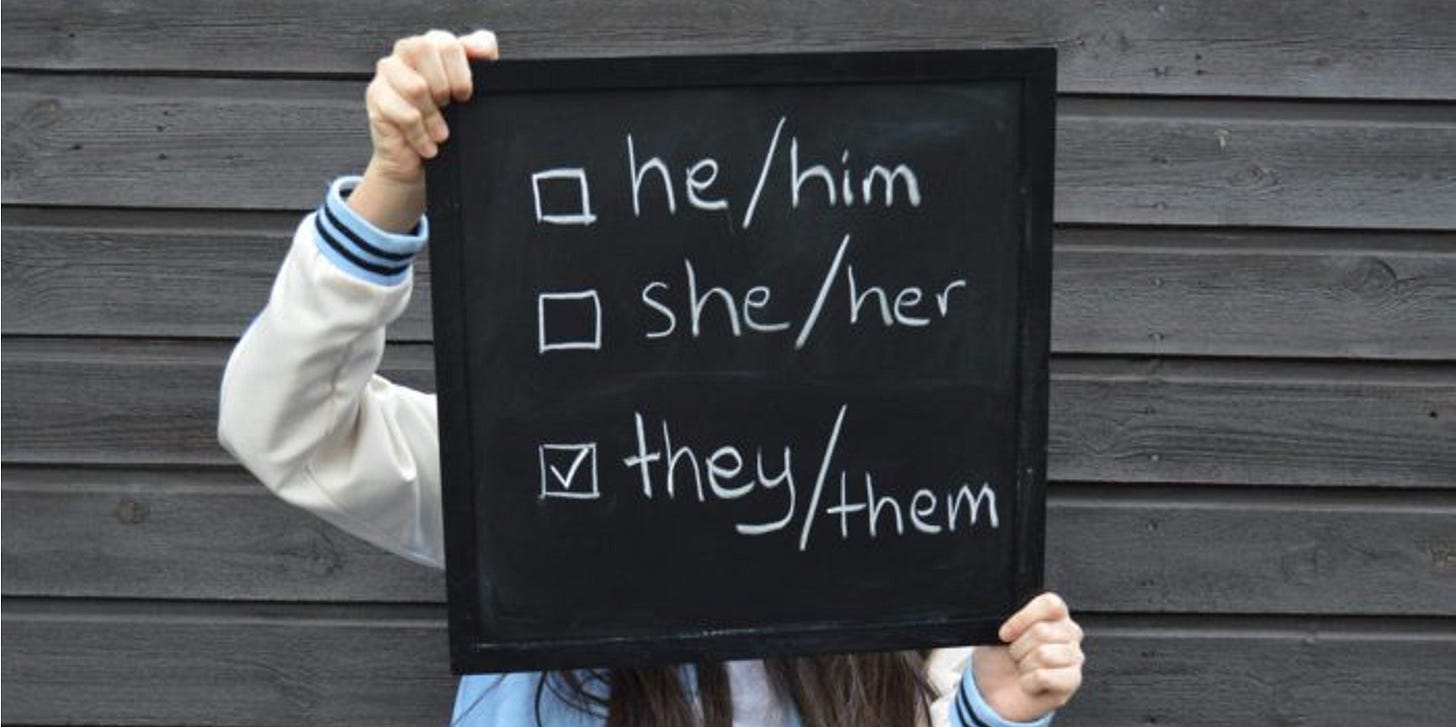This week on the Fair for All Substack, we published a new FAIR Advisor Spotlight profile by Sophie Lee of filmmaker Eli Steele. Eli Steele, much like his father Shelby Steele, is known for challenging popular narratives about race in America, and the way they impact our everyday decisions and personal relationships.
In 2020, during a year of high racial unrest, Eli and his father released What Killed Michael Brown, a documentary film examining Brown’s death and the racial tensions that arose around it.
The film, a collaborative project between Eli Steele and his father, Shelby Steele, took a critical look at the narrative brought forward by progressives and Black Lives Matter activists. Though Steele is himself a descendant of slaves and Holocaust survivors, the idea that black American life today is largely shaped by oppressive, systematic forces is one that Steele takes to task.
The film was immediately banned by Amazon Prime, citing “quality control” concerns. Though the documentary has garnered both praise and scorn, Steele is satisfied that it has spurred healthy debate and caused some to question the veracity of many dominant narratives driven more by emotion than facts.
Read the full article here.
For Persuasion, FAIR Advisor Zaid Jilani reports on a recent memorandum by the New York State Department of Health that included skin color as a criterion for authorizing the use of a scarce COVID treatment citing “longstanding systemic health and social inequities that have contributed to an increased risk of severe illness and death from COVID-19.”
Jilani calls on medical policymakers to “stop deciding which patients can get access to Covid medicine based on the color of their skin” because “there isn’t any evidence that race itself has any impact on COVID-19 severity.” According to Jilani, “the virus doesn’t care about the color of one’s skin.” Rather, race is simply correlated with factors, such as obesity rates, that are causing health disparities.
Jilani says that race-based policies not only make little medical sense, but they create “a larger political and social problem” and stoke racial divisions by “legitimizing certain forms of racial discrimination through the distribution of scarce government resources.”
Read the full article here.
This week on The Glenn Show, FAIR Advisor Glenn Loury spoke with Bob Woodson. In the 1960s Woodson was a civil rights activist and organizer who has since made it his mission to solve the problems of poverty and dysfunction in America. To that end, Woodson founded the Woodson Center, which helps fund and advise programs aimed at solving these issues.
In this conversation, Woodson and Loury discuss problems surrounding large-scale anti-poverty funding, such as their inefficiency, vulnerability to misappropriation, and the adverse incentive structures that create “cycles of dependency that prevent recipients from achieving self-sufficiency.”
Ultimately, Woodson believes that people must work directly with people from impoverished communities and, when appropriate, utilize their religious faith as “a starting point for practical reform.”
For Quillette, Kenneth R. Pike wrote about “diversity” in education, and the common claim that diverse matriculation “is of intellectual benefit to students.”
In some ways, according to Pike, there are intelectual benefits to diversity, citing an example from one of his own class discussions where a girl from Iraq was able to add an invaluable and enlightening first-person perspective on a discussion about the quality of life under tyranny versus ararchy. However, Pike points out that recruiting students to serve as pedogogical tools has its own issues, namely that it actively burdens minority students by requiring them “to contribute their perspectives for the benefit of their classmates.”
Instead of justifying affirmative action policies on the basis of this “diversity rationale,” Pike highlights the work of Kimberly Reyes, who suggests a “reparative rationale” where “past oppression of one’s identity group justifies special benefits to oneself, without regard for personal desert or incidental benefits (such as exposure to diverse viewpoints) as might accrue to others.”
In his essay, Pike discussed these and other common rationales for affirmative action policies, comparing and contrasting their practical, legal, and ethical components.
Read the full article here.
For the Journal of Free Black Thought, artist Kimi Katiti discussed the “unhealthy relationship in our culture between victim status and what is called ‘lived experience.’” Pulling from her own experience as a South African immigrant, Katiti describes the ways “critical social justice ideology” negatively impacted her perspective by insisting she view herself in terms “social inferiority and harm.”
When I identified as a victim, my lived experience was lauded by all as authentic. However, when I came out as a proudly free-thinking black individual, and no longer claimed victimhood as a part of my identity, my lived experience was rejected and discredited by both friends and strangers alike. This striking selectiveness in other people’s acceptance of my lived experience has led me down a somewhat sad and perplexing path.
Only upon leaving college did Katiti fully realize that this cynical way of thinking, of “filter[ing] all [her] daily interactions through a lens of racial power dynamics,” did not sit well with her and actively eroded her mental wellbeing.
Katiti has found the courage to speak out on her YouTube channel, and hopes that other black individuals will consider “jettisoning the expectation of victimhood and embracing instead, first, a positive expectation to meet with good in others.”
Read the full article here.
For the San Francisco Examiner, gender medical specialist Erica Anderson urged caution in using a ubiquitous “affirmative” approach to trans youth, suggesting that “isolation and social media” may be causing many kids to “rush toward gender identity as answer to distress.” Erica says:
As a trans woman and therapist to trans and gender creative people, I’ve worked hard to advance acceptance of trans identities, including those of trans youth. But increasingly I’m worried that in our zeal to identify and protect these special children and adolescents, we may have strayed from some core principles and we are in danger of losing our way.
While Anderson is happy that society is becoming more accepting of LGBTQ+ identities, she believes many worrying trends—increased depression and suicide, declines in dating and sexual activity, higher reports of loneliness, and less time outside combined with high rates of social media use—may be causing youths to gravitate toward trans identities as a palliative.
Anderson urges us to “make sure that every young person questioning their gender gets what they need, not just what they want,” because the pandemic is likely to persist indefinitely, and social media is here to stay.
Read the full article here.
On her Substack Lean Out, Tara Henley discussed why she resigned from the Canadian Broadcasting Corporation. Henley describes how the quality and type of reporting has changed during her time at the CBC:
When I started at the national public broadcaster in 2013, the network produced some of the best journalism in the country. By the time I resigned last month, it embodied some of the worst trends in mainstream media. In a short period of time, the CBC went from being a trusted source of news to churning out clickbait that reads like a parody of the student press.
Even more troubling than the turn to clickbate articles was the swift and dramatic political shift within the CBC, which she believes has compromised their journalistig integrity.
According to Henley, in order to work at the CBC, one must “sign on, enthusiastically, to a radical political agenda,” and “pretend that the ‘woke’ worldview is near universal.” One must “accept the idea that race is the most significant thing about a person, and that some races are more relevant to the public conversation than others.”
Read Henley’s full account here.
For The Guardian, Johann Hari claimed that our ability to concentrate is being “destroyed” by social media and “many other facets of modern life.” According to Hari, “we are not now facing simply a normal anxiety about attention, of the kind every generation goes through as it ages. We are living in a serious attention crisis—one with huge implications for how we live.”
Hari spoke with Joel Nigg, an experts on children’s attention problems, who believes that our society is developing “an attentional pathogenic culture,” or “an environment in which sustained and deep focus is harder for all of us.” Our inability to focus, according to Hari, is not the result of everyone suddenly becoming “weak-willed.” He believes our focus was essentially “stolen.”
Hari calls for an urgent “attention movement to reclaim our minds,” because:
The more our attention degrades, the harder it will be to summon the personal and political energy to take on the forces stealing our focus. The first step it requires is a shift in our consciousness. We need to stop blaming ourselves, or making only demands for tiny tweaks from our employers and from tech companies. We own our own minds—and together, we can take them back from the forces that are stealing them.
Read the full article here.
Join the FAIR Community
Become a FAIR volunteer or to join a FAIR chapter.
Join a Welcome to FAIR Zoom information session to learn more about our mission, or watch a previously recorded session in the Members section of www.fairforall.org.
Take the Pro-Human Pledge and help promote a common culture based on fairness, understanding, and humanity.
Join the FAIR community to connect and share information with other members.
Share your reviews and incident reports on our FAIR Transparency website.












Worth saying that Johann Hari's book has been thoroughly debunked by Matthew Sweet: https://twitter.com/DrMatthewSweet/status/1479125910896975877?s=20
I wanted to watch What Killed Michael Brown. It is not banned on Amazon. It’s available and can be rented for 4.99. You may want to correct the newsletter.